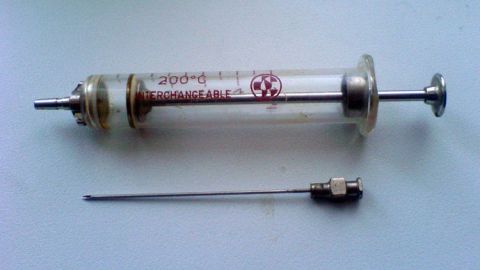Why Vaccines Don’t Cause Autism

In 1998, British surgeon and researcher Andrew Wakefield published a study purporting to demonstrate a link between early childhood vaccination and autism. The culprit, according to Wakefield, was a preservative known as thimerosal, which contains mercury and was then commonly used in the MMR (measles, mumps, and rubella) shot. The resulting outcry prompted an FDA ban on thimerosal in vaccines, as well as ardent “green vaccine” campaigns led by such celebrities as Jim Carrey and Jenny McCarthy. Yet subsequent research repeatedly discredited Wakefield’s study, which the British Medical Journal called “an elaborate fraud” earlier this month. So why did so many people fall for it?
In Part 3 of our Breakthroughs: Autism series, Big Think panelist Dr. Gerald Fischbach explains the factors that helped spread the myth. According to Fischbach, some evidence indicates that certain children “develop normally up to age two and then go through a precipitous decline” into autism—around the same time that many kids receive the MMR shot. “So you have two very common things, autism…and vaccination, and the correspondence was almost too much to ignore, especially with a troubled family looking for reasons; and so the suspicion grew.” Even once the thimerosal ban failed to lower autism rates—and later studies failed to show any other harmful link between vaccines and autism—that suspicion proved hard to quiet.
As Dr. Fischbach notes, Wakefield’s original paper has since been withdrawn, and Wakefield himself is no longer permitted to practice medicine in the UK. Indeed, his work has become infamous in the medical community for giving life-saving vaccinations a bad name; Dr. Susan Bookheimer notes that an “unprecedented” 10 children died from pertussis in Los Angeles County last year, a statistic she blames on vaccine panic.
But if vaccines don’t cause autism, what does? Scientists still don’t have a definitive answer, but our panel agrees that rising autism rates likely have nothing to do with environmental factors of any kind. Rather, improved diagnostic tools have led to a broadening of diagnostic criteria and, in turn, more frequent diagnosis of autism spectrum disorders. “The prevalence was just as high 20 years ago,” says Dr. Fischbach; it “just [was] not recognized” as widely by doctors. And of course, junk science had not yet stoked public perception of an epidemic.
More Resources
—Vaccines and Autism Timeline: How the Truth Unfolded.
—CNN Health article on the Wakefield study and subsequent sharp drop in UK vaccination rates.
—U.S. News & World Report article on widespread distrust of childhood vaccines among American parents.
The views expressed here are solely those of the participants, and do not represent the views of Big Think or its sponsors.





